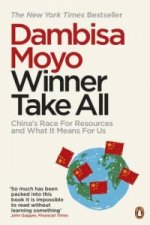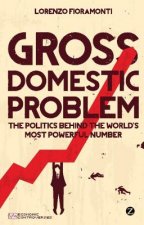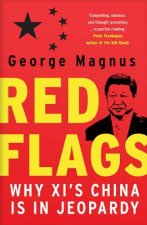
Code: 04716061
From Lathes to Looms
by Dorothy J. Solinger
For more than three decades, all manner of critics of socialist states -- non-socialists and socialists alike- have excoriated one of the most unfortunate consequences of the Stalinist-style command economy: its proclivity to favo ... more
- Language:
 English
English - Binding: Hardback
- Number of pages: 352
Publisher: Stanford University Press, 1991
- More about this

91.47 €

Low in stock at our supplier
Shipping in 13 - 16 days
Potřebujete více kusů?Máte-li zájem o více kusů, prověřte, prosím, nejprve dostupnost titulu na naši zákaznické podpoře.
Add to wishlist
You might also like
-

Monday's Child
11.66 € -18 % -

Offshore Drilling
40.65 € -

Des vies autour du monde 1: Une aventure ordinaire
17.70 € -1 % -

From Pluralism to Separatism
59.87 € -

Auf Geht's! Konstruktiver Utopismus
23.64 € -

Virtue and Politics
45.68 € -

Mind Changing Short Stories and Metaphors
12.47 €
Give this book as a present today
- Order book and choose Gift Order.
- We will send you book gift voucher at once. You can give it out to anyone.
- Book will be send to donee, nothing more to care about.
More about From Lathes to Looms
You get 230 loyalty points
 Book synopsis
Book synopsis
For more than three decades, all manner of critics of socialist states -- non-socialists and socialists alike- have excoriated one of the most unfortunate consequences of the Stalinist-style command economy: its proclivity to favor heavy industry over other economic sectors. Ironically, these systems set up in the name of "the people's" interest shortchanged their constituents' livelihood, as factories and foundries spewed out an endless stream of machinery and metals at the expense of consumer items and daily necessities. In the late 197o's, after the death of Mao Zedong, Chinese leaders were able openly and soberly to scrutinize their faltering industrial system. Under the determined leadership of Deng Xiaoping, they quickly altered the proportions of industrial output in favor of consumer goods. The Chinese leaders had two chief economic goals: to increase the financial returns to the central government and to lay the foundation for a reoriented future pattern of national growth that would give China a secure niche in world markets. They also hoped to open up new employment channels and to meet mass needs for consumer goods. This study shows why and how these goals were chosen and spells out how they were realized. Though there is no evidence of conscious borrowing, in its vision and tactics the agenda the Chinese leaders chose was highly resonant with what is elsewhere labeled "industrial policy." For this reason, the book draws on the literature of industrial policy in France and Japan, where this form of policy first took root, rather than adopting the more conventional model of comparative communism. The book uncovers striking similarities between China's post-1979 plan and what occurred in France and Japan after World War II, at the level of elite perception and goals and in societal, behavioral terms. These similar conditions- in context, decision-making pattern, and implementation style provide the framework of analysis for this volume, a framework that could be applied to ex-colonial and dependent Third World economies as well as to more authoritarian socialist planning systems.
 Book details
Book details
Book category Books in English Economics, finance, business & management Economics Political economy
91.47 €
- Full title: From Lathes to Looms
- Subtitle: China's Industrial Policy in Comparative Perspective, 1979-1982
- Author: Dorothy J. Solinger
- Language:
 English
English - Binding: Hardback
- Number of pages: 352
- EAN: 9780804719148
- ISBN: 0804719144
- ID: 04716061
- Publisher: Stanford University Press
- Weight: 580 g
- Dimensions: 229 × 152 × 24 mm
- Date of publishing: 01. October 1991
Trending among others
-

Euro
13.27 € -28 % -

Economic Consequences of the Peace
12.07 € -

Liberty & Property
7.14 € -1 % -

Politics of the World-Economy
25.35 € -17 % -

Governing the Commons
17.50 € -23 % -

Moneyland
11.26 € -23 % -

And the Weak Suffer What They Must?
10.96 € -23 % -

Garments Against Women
10.25 € -28 % -

Historical Capitalism
14.28 € -14 % -

Tyranny Unmasked
12.27 € -6 % -

Finer Future
28.97 € -18 % -

From Warfare to Wealth
28.07 € -14 % -

Capitalists Arise! End Economic Inequality, Grow the Middle Class, Heal the Nation
18.91 € -20 % -

Should we abolish household debts?
13.37 € -6 % -

Future of Capitalism
10.86 € -26 % -

Anti-Piketty
14.88 € -25 % -

Easternisation
11.87 € -4 % -

Theresa May
9.25 € -28 % -

Economies of Design
48.90 € -7 % -

Money
18.10 € -13 % -

Grüne fahren SUV und Joggen macht unsterblich, Audio-CD
18.10 € -9 % -

Dictators Without Borders
18.91 € -4 % -

Winner Take All
11.87 € -24 % -

Boulevard of Broken Dreams
23.54 € -

Rethinking Capitalism - Economic Policy for Sustainable and Equitable Growth
20.52 € -6 % -

After Hegemony
37.12 € -17 % -

Brexit and Ireland
10.25 € -28 % -

Great Rebirth - Lessons from the Victory of Capitalism over Communism
20.52 € -24 % -

Can We Avoid Another Financial Crisis?
13.48 € -5 % -

Gross Domestic Problem
29.28 € -

Taming Japan's Deflation
64.10 € -

Killing the Host
40.65 € -

Historical Capitalism
33.80 € -

Institutions, Institutional Change and Economic Performance
19.11 € -28 % -

State Capitalism
26.26 € -24 % -

Red Flags
16.70 € -2 % -

Oxford Handbook of Innovation
51.92 € -9 % -

And the Weak Suffer What They Must?
13.58 € -14 % -

Public Governance and the Classical-Liberal Perspective
115.72 € -

International Political Economy
53.73 € -

MITI and the Japanese Miracle
38.43 € -

New Great Game
14.58 € -18 % -

Chinese Economic Statecraft
42.46 € -

Primacy of Politics
36.32 € -

Great Transformations
28.77 € -19 % -

Architecture of Innovation
28.27 € -20 % -

Mean Girl
18.31 € -8 % -

Trend of Economic Thinking
15.69 € -

Crony Capitalism
36.32 €
Collection points Bratislava a 2642 dalších
Copyright ©2008-24 najlacnejsie-knihy.sk All rights reservedPrivacyCookies


 15549 collection points
15549 collection points Delivery 2.99 €
Delivery 2.99 € 02/210 210 99 (8-15.30h)
02/210 210 99 (8-15.30h)